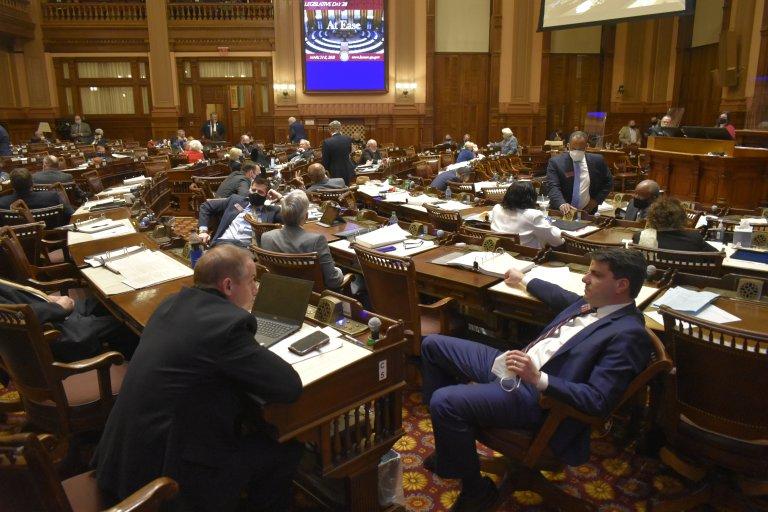
Caption
State lawmakers Monday completed a socially distanced Crossover Day 2021, narrowly pushing ahead a bill with major voter restrictions and unanimously approving one that would repeal Georgia's citizen's arrest law.
Credit: Ross Williams/Georgia Recorder


